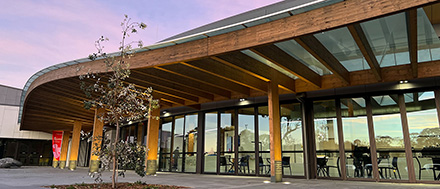There is an old saying – that has been raised here before – that local governments should stick to handling roads, rates and rubbish and that’s it. But instead, in recent years, we have seen an increase in the number of councils across Australia and overseas involved in social, political and environmental causes.
In some cases, this can be a good thing. Councils need to be aware and show concern for ratepayers.
But when council starts stepping into political and environmental causes things often get out of hand.
Making sure rivers and creeks are not polluted by industries in the council area is admirable, as is ensuring municipal waste is ecologically and responsibly handled is another.
Declaring a council “nuclear free” is probably going a bit far.
Calling on a State Government to halt native timber logging is a huge stretch.
We’ve been here before of course.
In February last year we reported on Murrindindi Shire Council in northern Victoria which did just that.
Well, this week it was Eurobodalla Shire Council’s turn.
The council, on New South Wales’ far south-east coast, this week debated a motion put up by Deputy Mayor Alison Worthington calling for the council to support an end to native forest logging in the Shire.
In her motion Cr Worthington noted the “growing evidence” that native forest logging by Forestry Corporation of NSW in State Forests is both “economically and environmentally unsustainable”.
In a submission to council, South East Timber Association secretary Peter Rutherford, among other things, pointed out that for more than 30 years, activists campaigning to stop native forest harvesting across NSW have promised lost jobs would be replaced by new jobs, particularly in eco-tourism.
He told council that small regional communities from Urbenville to Eden have suffered the social and economic consequence, as the promised replacement jobs failed to materialise.
“SETA respectfully suggests that councillors do not allow the Eurobodalla Shire Council to be dragged into this eco-political campaign, by those councillors who have an affinity with the activist movement,” Mr Rutherford’s submission said.
The motion went ahead.
The first motion sought to recognise public native forest logging as being both “economically and environmentally unsustainable”, noting the fines accrued by the agency so far this year. The motion failed.
The second motion recognised “growing concern” among residents about forestry activates, stating that the practice should be revised in line with “current best practises” internationally, and in states such as WA where the practice is being phased out. The motion passed.
The third and fourth motions recognising the role of logging in the region’s forests as being incompatible with the Eurobodalla’s nature-based tourism, climate change mitigation plans, and protection of biodiversity, as well as the need for an urgent transition, also passed.
A fifth motion which sought to advocate for a closer role between the state government and local communities in managing state forest assets failed.
So, what did the council achieve?
Well, probably a feel-good moment, but little else.
As remarked in February in reference to Murrindindi Shire Council, so many councillors and their councils in so much of this country do a fantastic, if at times, thankless job.
But as we pointed out then, and point out again today, to use council and ratepayer time over something they clearly know little about and have no control over just for some chest-thumping feel-good exercise is beyond the pale and does ratepayers’ little service.
The same sentiment applies to Eurobodalla Shire Council






